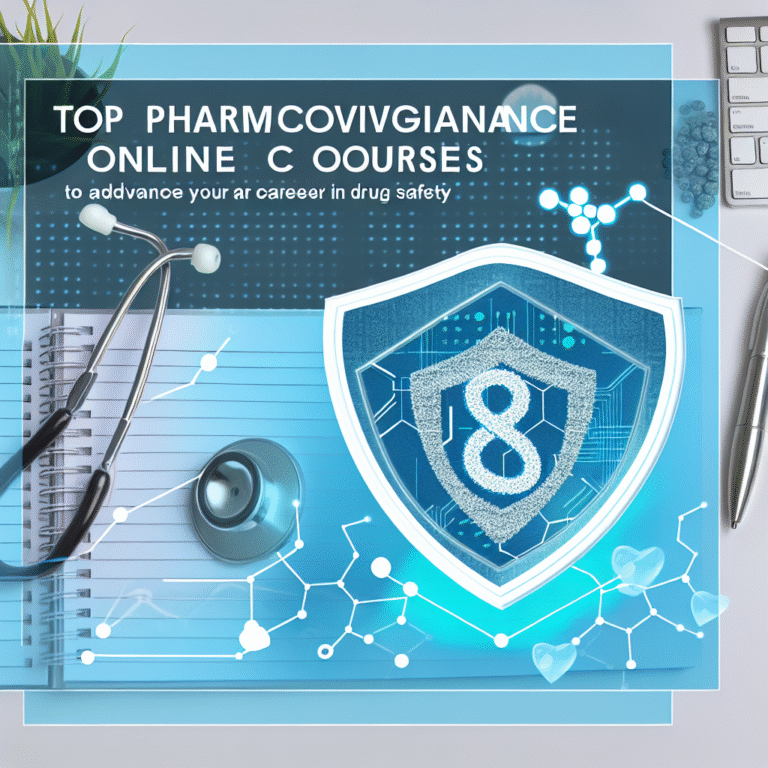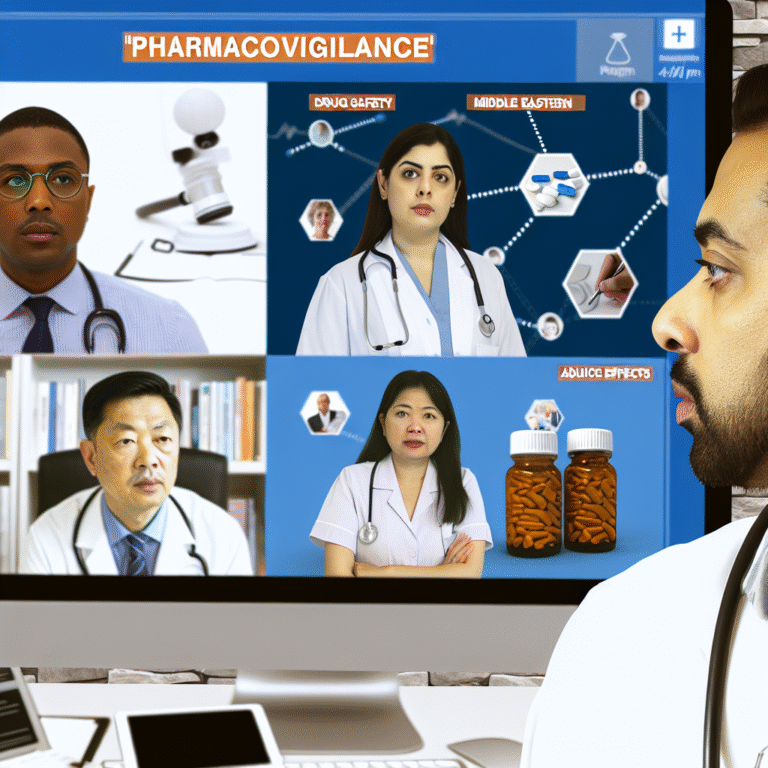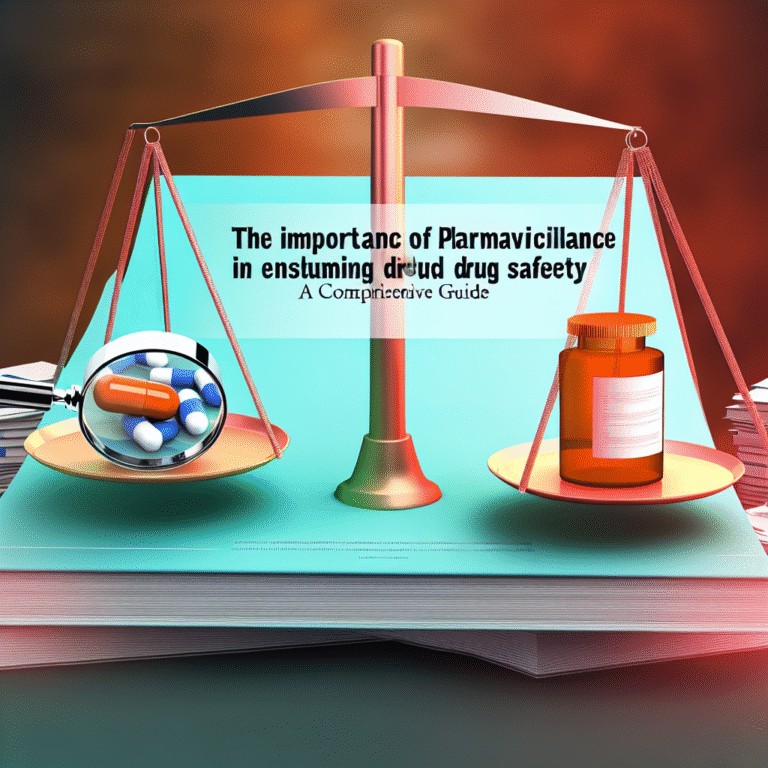How to Become a Pharmacovigilance Specialist: A Step-by-Step Guide
How to Become a Pharmacovigilance Specialist: A Step-by-Step Guide
Introduction
Pharmacovigilance is a super important part of the pharmaceutical world. It’s all about making sure drugs are safe and watching out for any bad effects they might have. As more people want safe medicine around the world, pharmacovigilance specialists become even more important. They help keep us safe by figuring out and stopping bad effects from drugs before they happen. This guide will show you how to become a pharmacovigilance specialist. You’ll learn about the skills you need, the education you should get, and the jobs you can have in this exciting field.
Understanding Pharmacovigilance
Pharmacovigilance is all about keeping an eye on drugs and making sure they’re safe. Here are some important ideas you should know:
– **Adverse Drug Reactions (ADRs):** These are bad reactions to a medicine that happen even when you take the right dose for what it’s meant to treat.
– **Risk Management:** This means finding, watching, and trying to reduce risks from drugs to keep people safe.
– **Regulatory Compliance:** Following rules and guidelines made by health authorities to make sure people use medicines safely.
Pharmacovigilance is super important because it helps stop bad effects from drugs, and it makes sure people use medicine safely. It also helps keep the trust of people and health authorities.
Essential Skills and Qualities
To be great at pharmacovigilance, you need some specific skills and qualities:
1. Be good at analyzing and thinking critically to understand complex information.
2. Pay close attention to details and be accurate when reporting.
3. Communicate well to explain things clearly.
4. Handle pressure and meet tight deadlines.
5. Know the pharmaceutical rules and guidelines to follow them properly.
6. Be good at using data management and analysis tools to make smart decisions.
Educational Requirements
To become a pharmacovigilance specialist, you need certain educational qualifications:
– **Relevant Degrees and Education:** Usually, you need a bachelor’s degree in pharmacy, life sciences, or related fields. But, having a Master’s or Ph.D. in pharmacovigilance, pharmaceutical sciences, or public health is even better.
– **Suggested Coursework or Certifications in Pharmacovigilance:** Take courses or training programs that teach you about pharmacovigilance methods, safety databases, and regulations.
Gaining CPG Experience
Getting real-world experience is priceless when starting your career in pharmacovigilance. Here’s how to get hands-on experience:
1. **Internships or Entry-Level Jobs:** Look for opportunities in pharmacology, drug safety, or related fields to start in the industry.
2. **Volunteer or Part-Time Roles:** Work in healthcare settings to learn about pharmacovigilance.
3. **Attend Workshops, Seminars, and Webinars:** Join events about pharmacovigilance to stay updated on the latest practices.
Certification and Training Programs
Certification shows your dedication to the field. Consider these programs:
1. **Drug Safety Research Unit (DSRU):** Offers courses to keep you updated on recent pharmacovigilance practices.
2. **DIA Global:** Provides training on effective drug safety and management.
3. **Regulatory Affairs Professionals Society (RAPS):** Offers courses on regulatory compliance and drug safety.
Building a Professional Network
Networking can help your career and give you valuable insights:
1. **Join Professional Associations and Organizations:** Think about joining the International Society of Pharmacovigilance (ISoP), Pharmaceutical Information & Pharmacovigilance Association (PIPA), or the British Pharmacological Society (BPS).
2. **Attend Conferences and Networking Events:** These events are great for meeting experts and peers.
3. **Engage in Online Forums and LinkedIn Groups:** Join discussions and follow related groups to learn more.
Finding Job Opportunities
Finding the right job means being strategic:
1. **Use Online Job Portals and Recruitment Agencies:** Regularly check platforms like Indeed, LinkedIn, and Glassdoor for pharmacovigilance jobs.
2. **Explore Company Websites and Career Pages:** Often visit pharmaceutical companies’ career pages for openings.
3. **Network Through Professional Contacts and Industry Events:** Personal recommendations can help you get job opportunities.
Prepare your resume and cover letter to highlight your experience and accomplishments. Also, practice your interview skills so you can talk about your expertise confidently during interviews.
Career Advancement and Development
Once you have a job, there are many ways to grow in pharmacovigilance:
1. **Advance to Senior Pharmacovigilance Specialist Positions:** Take on more responsibilities and handle complex projects.
2. **Move into Management or Leadership Positions:** Lead a team and oversee larger projects.
3. **Specialize in Areas Like Signal Detection, Regulatory Affairs, or Risk Management:** Focus on specific parts of pharmacovigilance.
Continuous professional development is key, so keep learning through courses and certifications to stay competitive.
Challenges and Rewards in Pharmacovigilance
Working in pharmacovigilance has challenges, like handling lots of data, meeting tight deadlines, and being really accurate. But it’s also rewarding because you play a big role in keeping people safe by ensuring drugs are safe. Knowing that your work protects people from harmful drug effects makes this a fulfilling career choice.
Conclusion
A career in pharmacovigilance is a unique chance to make sure drugs are safe and to protect people. By following the steps in this guide, you can start your journey to becoming a great pharmacovigilance specialist. With hard work and the right skills, you’ll find this field both challenging and rewarding. At Pharmacovigilance Foundations, we’re here to help you with the tools and knowledge you need to succeed in this important field.






